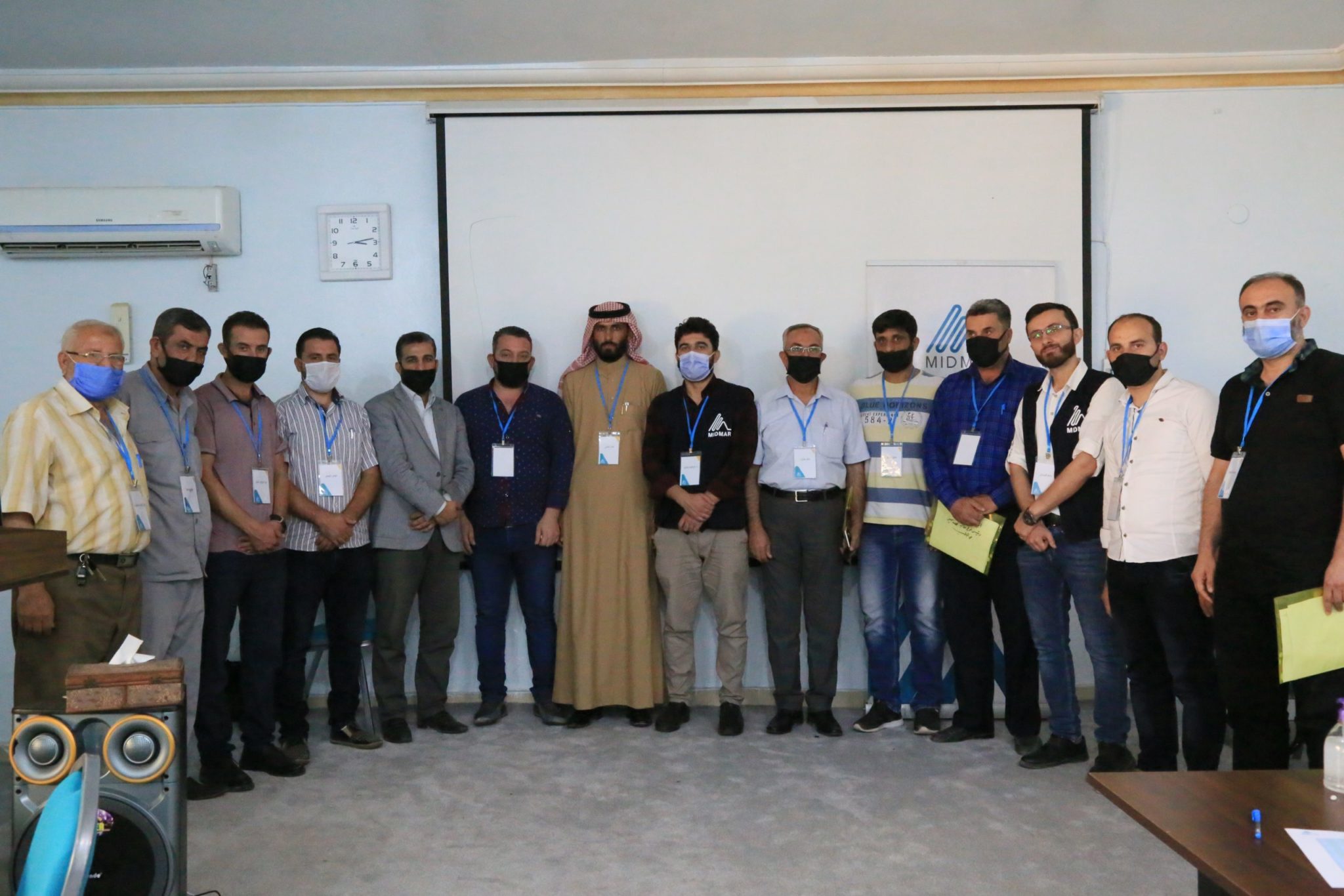The Surest Path to Young Adults’ Financial Self-sufficiency
In 2021, the United Nations estimated the number of Syrians living in extreme poverty at more than 90% of the population indicating that many of them are forced to make very difficult decisions so they can cover their expenses and make ends meet. And according to the annual report issued by the United Nations High Commissioner for Refugees (UNHCR), more than 70% of Syrian refugees live in grinding poverty and are vulnerable to exploitation and abuse in asylum countries.
Although emergency relief efforts and projects assist in overcoming multiple problems and challenges encountering Syrian refugees, they remain inadequate in terms of improving the conditions and quality of life of youth, especially with more than 10 years of ongoing conflict and insecurity.
The above mentioned facts indicate that young people in general and refugees or internally displaced people (IDPs), in particular, need to improve their abilities and change their tendencies to generate income and uplift themselves as well as their families from poverty. This includes focusing on vocational or technical education and training.
What makes vocational education so necessary?
Vocational education and training are essential to fully prepare a person to practice and master a specific profession or craft throughout providing youths with the knowledge and competencies required to penetrate the labor market. Hence, the trainee becomes ready enough to engage in career paths, regardless of whether their newly-selected career requires a certificate or not. In short, vocational education and training (VET) provides learners with essential skills supporting their personal development, enhancing their employability and encouraging active citizenship.
For instance; working in the pharmaceutical and food industries requires craftsmanship while working in the industrial field such as electrical equipment and machine maintenance requires a certificate and practical skill.
Despite the several benefits of vocational education, many Arabs still have a negative and inferior perception of vocational education and training as they continue to glorify obtaining certificates over acquiring useful skills, which is a status quo that must be challenged and changed.
In difficult economic situations where a person is forced to immigrate, suffer from displacement, seek refuge in other countries, or even stay in a country suffering from conflict and war, a person needs to fit into any labor market available in their new country of residence.
For example; Syrian refugees have had a positive impact on the economy of their host country. Hence, refugees were no longer seen as a burden, but rather as an opportunity to be embraced because they had managed to make their way. According to a report published in the “Foreign Affairs” magazine on the positive effects of refugee employment on the German economy, Syrian refugees have contributed to Germany’s prosperity since 2016. And the number of refugees in the professional sector who have mastered the German language or are enrolled in government education or vocational training has been steadily increasing.
- Hanadi supports children in Zaatari refugee camp
The story of “Hanadi” from the Zaatari refugee camp in Jordan, which was documented by the United Nations reports in August 2022, was a distinctive model for over 80,000 people suffering from difficult conditions for ten years.
Hanadi believed that professional skills (vocational) are the only hope for young people. Therefore, she decided to start teaching children computer skills, within a UNICEF-supported center.
These children have grown up to witness abnormal circumstances and limited opportunities, which may affect their outlook on their future.
Key Factors for Successful Vocational Education & Training Programs
Vocational training is highly important for societies and youth. However, it is more important to provide a set of requirements for training plans to succeed, most notably;
- Developing the curricula and teaching methods utilized in professional specializations in academies and various institutions in a manner that fully complies with the needs of the labor market and the constant development in the fields.
- Supporting technical training centers and institutes by offering them competencies that keep abreast with contemporary developments in various fields.
- Reinforcing the partnership between these institutes and employers as well as the key actors in the labor market.
- Spreading the culture of vocational training and the impact that it can make on both individuals and entire societies, particularly vulnerable societies like refugees, through properly investing in such type of training.
Vocational skills development
We are constantly striving to encourage adopting vocational training as an approach that can efficiently nurture the knowledge as well as the technical and practical skills of Syrian youth allowing them to find the job opportunities they need. Thus, we have launched the MAHARAT {Skills} Program for Vocational Training.
Tens of beneficiaries received extensive training in programming, multimedia, psychosocial support, and renewable energy in a way that ensures delivering positive outcomes and influence on all segments of society.
While the chances of individuals getting a good job opportunity increase, institutions and companies get to recruit qualified employees who meet the needs of the market. Offering a win-win situation, this exchange of competencies boosts production rates and enhances quality of production, regardless of the nature and circumstances of the society in which they live now.
- A step in the right direction!
How do I become qualified? And where do I start?
Such questions may come across the mind of a young man who is facing many livelihood challenges, to which the answer addresses several aspects and possibilities to consider.
A young man or woman can start by looking for vocational training centers and institutions, and officially join them so that he or she gets proper training within a specific period of time.
What if it was difficult to access such centers? S/he is recommended to try a different approach, which is to directly enter the job market. Instead of looking for months for a job, only to receive a rejection for lack of qualification, they are to search for an employer who offers a probationary period even in exchange for a lower wage, so that they acquire the skills needed to get a better job opportunity and a higher salary.
There are plenty of areas in which youths can get involved, and surely one of these areas falls within their interest; including industrial fields that include maintenance, electricity and technology, tourism and hotels, medical and engineering assistants, handicrafts such as sewing and carpentry, technology and many other fields.
What matters is to take the first step. This is your sign to start looking around and taking your very first step in the right direction.
____________________
Resources


